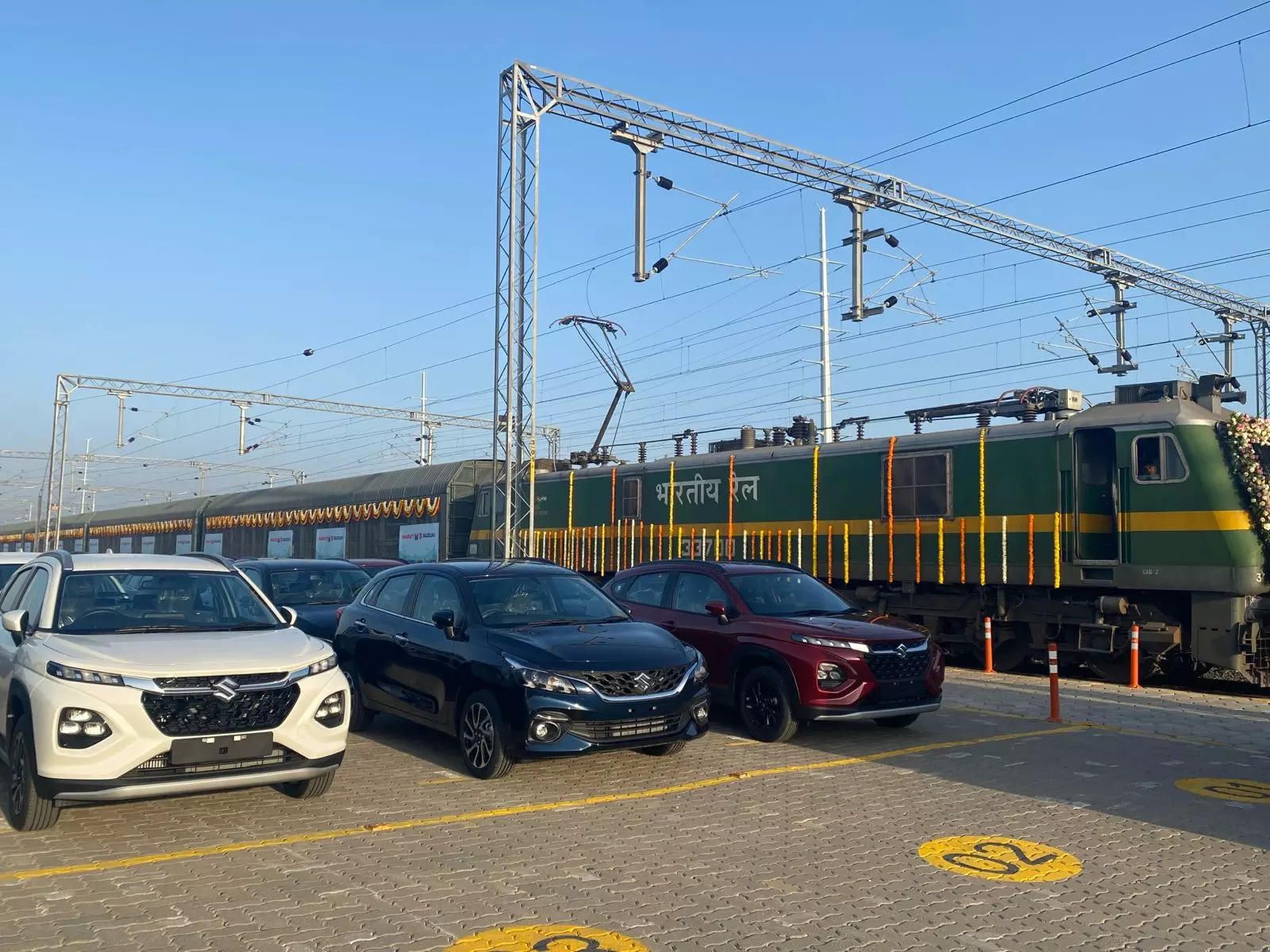The country’s largest carmaker’s vehicle dispatches through railways increased from 65,700 units in 2014-15 to 4,47,750 units in 2023-24.
“With our production capacity nearly doubling from about 2 million units to 4 million units by FY 2030-31, we plan to augment the use of railways in vehicle dispatches, close to 35 per cent over the next 7-8 years,” Takeuchi stated.
Maruti Suzuki has so far dispatched over 20 lakh units through Indian Railways. The automaker ferries vehicles to 20 destinations, serving over 450 cities using Indian railways.
Takeuchi said the company pioneered the use of railways for vehicle dispatches over a decade ago by becoming the first company in India to obtain the Automobile-Freight-Train-Operator license.
Since then, the company has systematically increased its share of vehicle dispatches using railways, he added. “Through our sustained efforts in green logistics, we have achieved outstanding results including cumulative reduction of 10,000 metric tonne of CO2 emissions and 270 million litre of cumulative fuel savings,” Takeuchi noted. The company stands committed to the country’s net zero emissions target by 2070, he added.
Earlier this year, under the PM Gati Shakti programme, Prime Minister Narendra Modi inaugurated the country’s first automobile in-plant railway siding at Maruti Suzuki’s Gujarat facility.
This facility has a capacity to dispatch 3 lakh vehicles per annum.
The next in-plant railway siding is in progress at the company’s Manesar facility and will be operational soon, the automaker stated.


